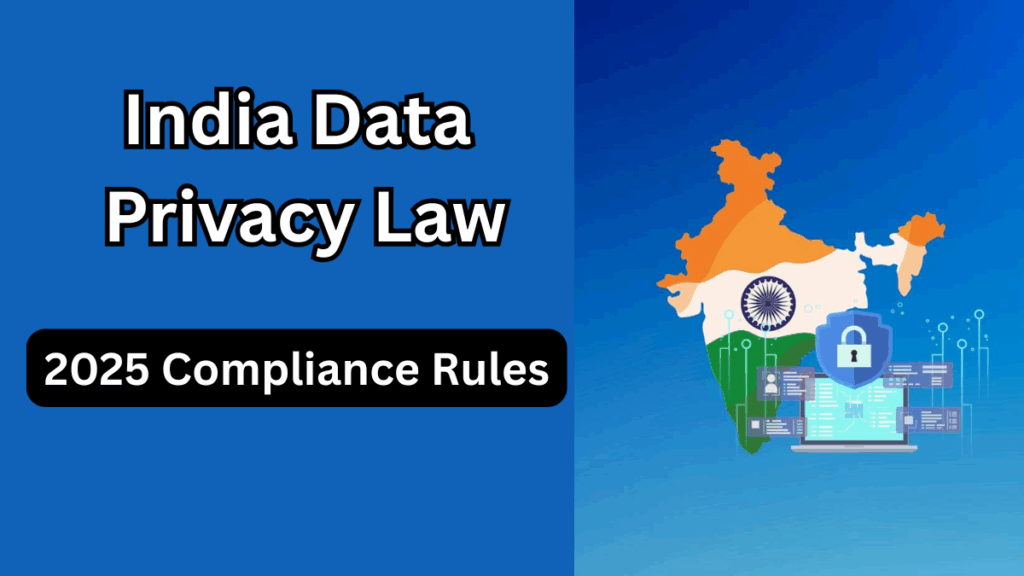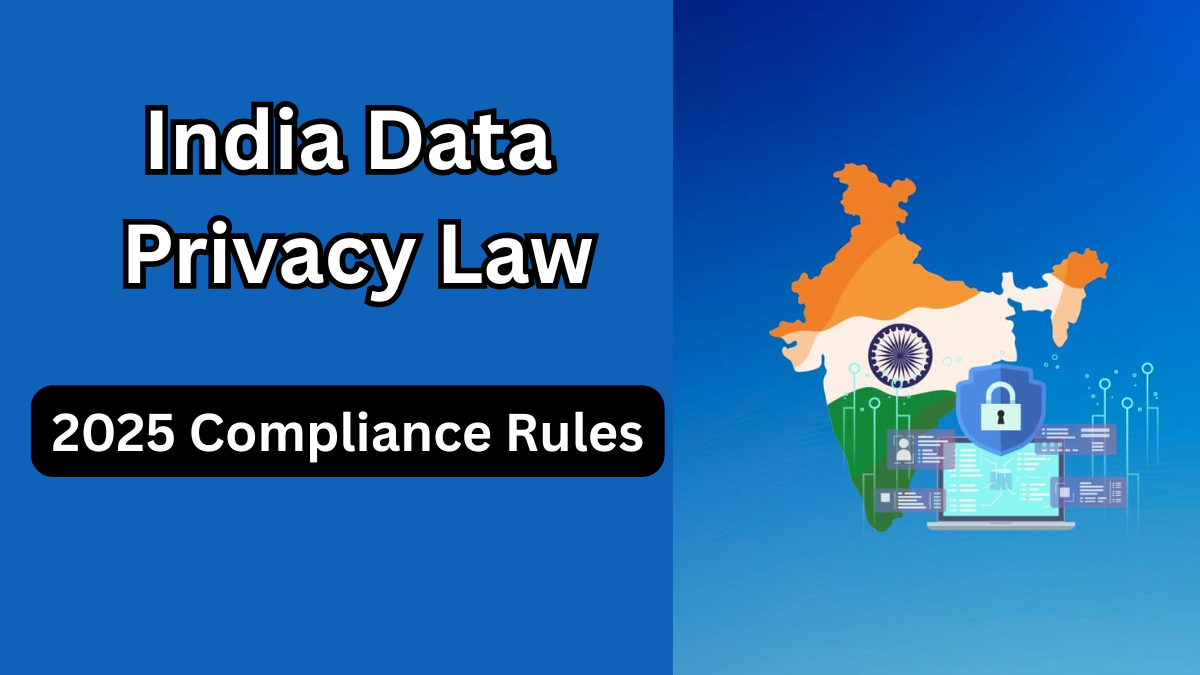In today’s digital-first world, data is the new currency. With the Data Privacy Law India 2025 coming into effect, businesses across the country must now rethink how they collect, process, and store personal information. This isn’t just about legal compliance – it’s about building trust with customers and safeguarding sensitive data in a rapidly evolving tech landscape.
If you’re a business owner, startup founder, or compliance professional, this compliance guide will help you navigate the key rules and prepare for seamless implementation.

Why Does the Data Privacy Law India 2025 Matter?
The law is designed to protect individuals’ personal data while ensuring that businesses operate transparently and responsibly. It addresses growing concerns around privacy breaches, unauthorized data usage, and misuse of personal information.
In simple terms, it gives individuals greater control over their personal data – and demands organizations to be accountable for how they use it.
Key Highlights of the Data Privacy Law India 2025
Here’s a quick snapshot of the most important aspects of the law:
-
Explicit Consent: Businesses must obtain clear consent before collecting personal data.
-
Data Localization: Certain categories of sensitive data must be stored within India.
-
Breach Reporting: Mandatory notification to authorities and affected users in case of data leaks.
-
User Rights: Individuals can request access, corrections, or deletion of their data.
-
Penalties: Heavy fines for non-compliance, ranging from financial penalties to restrictions on operations.
Compliance Requirements for Businesses
To comply with the Data Privacy Law India 2025, organizations need to implement robust policies and systems. Here’s a breakdown:
| Requirement | Action Needed |
|---|---|
| Data Mapping | Identify and categorize all personal data you store. |
| Consent Management | Create clear opt-in forms and ensure user transparency. |
| Security Measures | Use encryption, secure servers, and regular audits. |
| Staff Training | Train employees on privacy policies and compliance practices. |
| Breach Response Plan | Develop a clear protocol for incident reporting. |
Steps to Ensure Smooth Compliance
Here’s how you can get started:
-
Audit Your Data: Map all data collection points and review storage practices.
-
Update Privacy Policies: Ensure your privacy policy aligns with the new law.
-
Invest in Technology: Use compliance software and cybersecurity tools.
-
Train Your Teams: Make data privacy awareness a part of your company culture.
How This Impacts Customers
For consumers, this law means:
-
Greater control over their personal data.
-
Transparency about how companies use their information.
-
Quick action in case of a data breach.
For businesses, this is an opportunity to build trust and enhance brand reputation by showing that customer privacy is a top priority.
FAQs
1. Who needs to comply with the Data Privacy Law India 2025?
All businesses, organizations, and entities collecting or processing personal data of Indian citizens must comply.
2. What happens if a company fails to comply?
Non-compliance can lead to significant penalties, legal actions, and even operational restrictions.
3. Does the law apply to small businesses and startups?
Yes, the law applies to all entities handling personal data, though compliance requirements may be scaled based on business size.
4. How can businesses prepare for compliance?
Start with a detailed audit, update policies, invest in secure infrastructure, and train employees on privacy protocols.
Click here to learn more
